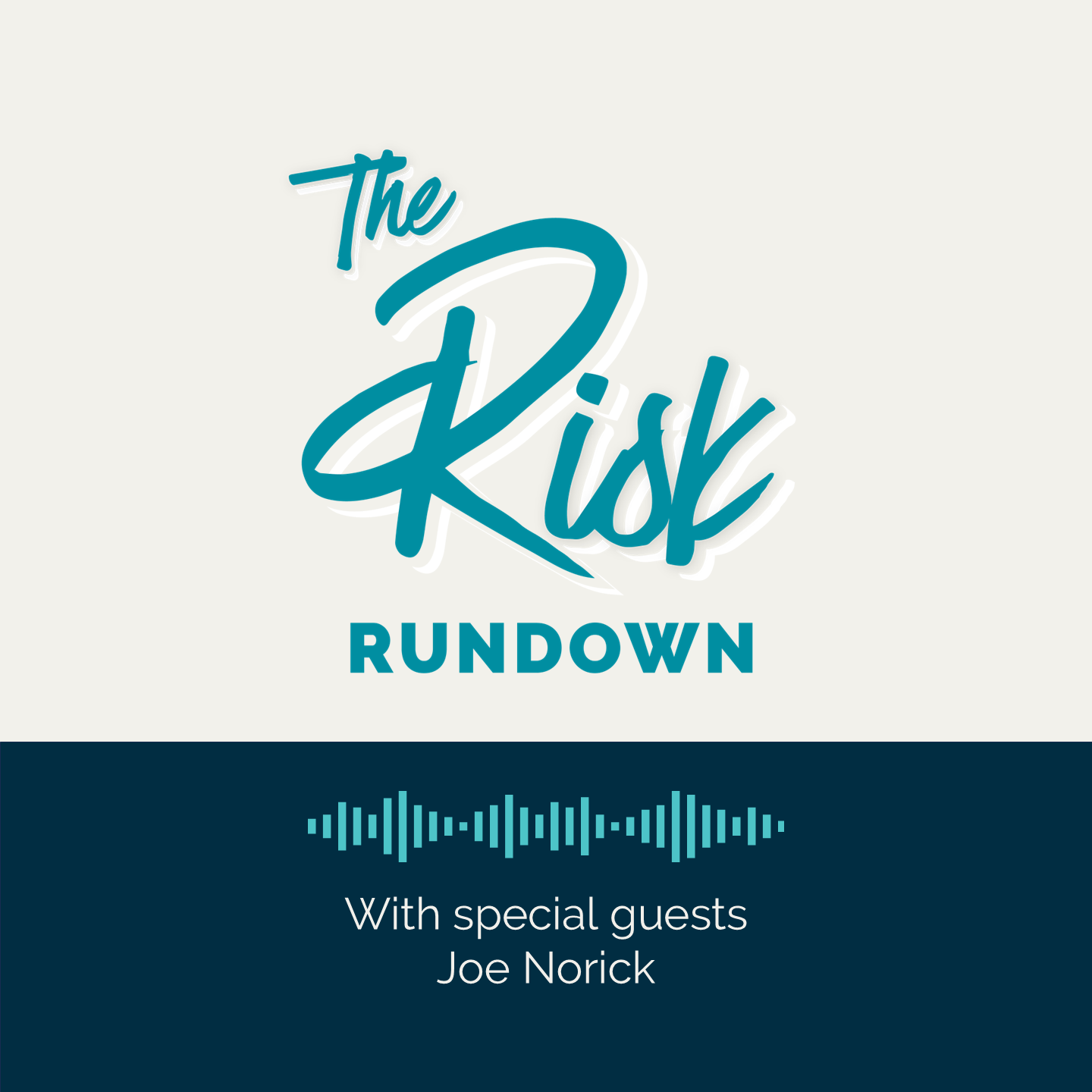The Hidden Risks in Today’s Luxury Insurance Market
High-net-worth households face rising risks from luxury homes in disaster zones to valuable assets like vintage cars and private staff. With insurance non-renewals on the rise, resilience is critical. Kama Moseley joins Julie Rison to discuss how today’s affluent families can protect their luxury assets in an unpredictable world.
Julie (00:03):
It is time, once again for The Risk Rundown where we discuss how affluent individuals and families can manage and stay one step ahead of risks in life. I'm your host, Julie. Hey, Kama. Kama Moseley! I'm so excited to have you with me today. Thank you so much for joining.
Kama (00:31):
Thank you, Julie, for having me. I know, uh, you and I are both excited to finally get to do this together.
Julie (00:37):
I know, I know. And as we were speaking before, we've already had many of these types of conversations before, but I think it would actually be beneficial for our audience to hear some of our conversations back and forth that we have right about hypothetical situations that some of our clients are dealing with and that we've come across over the years being in this industry, as well as the type of market that we're in at the moment. We're seeing things that we haven't normally seen before in the past. And so I would love to just get right into it and give you some kind of some hypotheticals and get some ideas from you about how you've handled things in the past. So first off, let's talk about the elephant in the room and let's talk about catastrophes and homeowners and some of our clients are buying and purchasing these luxury homes. In, of course, what are elite areas geographically, but happen to be high risk for wildfires or hurricanes? How do our clients consider buying these things and what are the risks of the climate that they're approaching that we need to really give some recommendations and some guidance on?
Kama (01:44):
You know, Julie, it's so interesting as we were touching base yesterday and talking a bit, we talk about wildfires in California, but quite frankly, we've got wildfires in a lot of parts of the country. We've got huge hurricanes that we had the last two really large ones that came through Florida and obviously hit so much of that southeastern part of the United States. And I just, it feels like so much of the country is now under, uh, catastrophic warnings. Even. I live in Kansas City. In the Midwest, the convective storms are doing a ton of damage with hail, and wind, and flooding. And so I think what I am saying to my clients oftentimes is it's really important to think about where you're going to buy a home. So one of the tips we always give our clients is call your broker and do a zip code check.
(02:33):
Understand where you're buying. Are you even insurable in that area you're buying in? And if you are insurable, what's it's going to cost? We had a client who had a home in Montana. It was costing them $30,000 a year. It had gone up to $300,000 a year. So they ended up selling the home. The new buyers who bought the home after they bought the found out, they're going to — I mean, these sound incredible, incredible, but they are, they're real. I mean, people are really experiencing this. So, so having that zip code check and really understanding where you're buying, what that is going to look like with regard to paying for the insurance, and then of course thinking about how you're going to mitigate that risk.
Julie (03:14):
We're actually very fortunate at Alliant Private Client, because we have our risk mitigation people, right? We have two full-time risk mitigation people that they will go out to certain properties and give advice and or they'll have a phone conversation with clients and say, listen, you need to be aware of this, or you might wanna do this before the carrier comes out and they're gonna require it, but we're just highly suggesting that you do this, right? So we actually have in-house people being advocate for our clients when it comes to that kind of thing. So we are actually very fortunate. We have such great resources internally that don't cost our clients anything. What an amazing resource. What an amazing resource. So a lot of our clients and really good clients, mind you, right? Like clients that haven't had claims that haven't, aren't in high-risk areas, they're getting non-renewed, right? I mean, you and I have both had these types of conversations with clients that they are longstanding clients with no claims and they are getting notices of non-renewals from their insurance companies.
Kama (04:16):
Mm-hmm.
Julie (04:17):
How do you emphasize the unique risks tied to households and the non-renewals and things that our clients are in good standing, but yet are getting these notices that are pretty, you know, they're, they're not nice notices. They can be pretty scary. So yeah,
Kama (04:35):
How
Julie (04:36):
Are you addressing that with your clients?
Kama (04:37):
It is very alarming and very scary. And again, having that broker partner that can step up and say, Hey, don't worry, we're going to remarket. We're going to find a solution for you. Continue to put risk mitigation devices in your homes when you're told to do so. And even when you're not told to do so, do not file small claims. Really save it for those catastrophic events. If you have questions about the claims, call your broker. Don't go straight to the carrier that automatically opens a claim. So there's so many different things that, again, we can do as long as we're being education forward to help our clients understand why they might be getting non-renewed, but also how to help them from getting non-renewed.
Julie (05:14):
Honestly, some of the insurance companies, to your point, are just exiting certain areas and, and honestly, it could be in an area that it's really important for us to actually tell our clients, it's nothing that you did. And you know, it's almost like that saying, it's not you, it's me. It's exactly right, you know, it's not you, you, it's the insurance company, but yeah. Yeah. We'll, we'll actually find another solution for you. I mean, and that's the benefit of being an independent agent, right? We work with lots of different insurance companies that we can actually have options for our clients where you go to, you know, certain carriers and that's the only option they have where that's, we're very fortunate that we actually have options for our clients.
Kama (05:53):
Absolutely. Absolutely.
Julie (05:55):
A lot of our clients have domestic employees, or they have family offices that have domestic employees, right? And I know that there's a lot of things that maybe we can suggest and for them to just kind of be aware of more so of anything and the coverages that they might not know are out there, or things that they should be considering when they are hiring a domestic employee. By domestic employee, I mean housekeepers or chefs or personal trainers or maintenance crew or whatever, drivers, personal drivers, right? What kind of coverages or things would you recommend? Are clients really kind of looking into when they are actually
Kama (06:35):
Hiring employees? There's a lot of things to think about. Here. I am thinking about liability and I'm also thinking about safety, right? So when you're having someone come into your home, certainly background checks are just an easy no brainer, something to keep your family safe. And with our high net worth carriers that we work with, many of them, depending on the program, will offer several free background checks a year. That's a great no-brainer. But another way I'm thinking about liability, and I'm thinking about the reason why it's so important for everybody to have an umbrella and to have the right umbrella with the right coverages on that umbrella. And what happens is that umbrella protects your family, right? If something happens in your home, it's not that staff member that's been with you for 30 years who's going to sue you. It's their attorney.
Julie (07:23):
It's not necessarily, to your point, not necessarily that person. It could be somebody associated with them. The other point is, with the EPLI coverage, the employment practices liability, that's key. I mean, people think, oh, you know, yeah, it will cover you in the event that there's a wrongful termination or allegations of discrimination. If anybody has a nanny or honestly anyone, they really need to be thinking about that kind of thing because that is the type of thing in this day and age that can come back and really be an issue in your insurance program and your investments or your net worth. Okay. So one more, and then we're gonna wrap it up here. Let's talk about classic cars and vintage cars. Okay, let's do it. Let's do it. We have clients that have, I don't wanna necessarily say a fleet of vehicles, but there could be, but really some nice vehicles and maybe vintage or antique cars that actually that they're using and they're transporting to parades or to car shows or to different events. What do you say or how do you place the coverage for those types of vehicles? Because they're different than our regular Sure. Monday through Friday cars, right? Our regular day-to-day cars. So
Kama (08:35):
Yeah,
Julie (08:35):
What makes it different and where would we go and what things to consider for that kind of stuff.
Kama (08:39):
Yeah, absolutely. And I think this is again, where making sure that you're with a broker who can offer, right, the high net worth carriers or even the collector car carriers that really understand how to ensure things that aren't just, again, your daily drivers, when you're exhibiting them, when you're transporting them. And really these high dollar cars as well, just being able to understand how to place the insurance. So for instance,
Julie (09:04):
If they're taking their cars on a regular basis and they're gonna be driving them in parades or they're gonna be doing, some insurance companies exclude that type of exposure, right? Absolutely. They don't want them to be doing that. And so as soon as they, the high-performance vehicles, they put 'em on a racetrack 'cause it's fun, right? Oh, that kind of stuff is completely excluded, and as soon as you hit the parade route or you hit that racetrack coverage is no longer available and it's null and void, right? Yeah,
Kama (09:32):
Great point.
Julie (09:33):
The other thing is that a lot of people, even on our day-to-day vehicles, if there's any customization sometimes in the event of a total loss, they aren't taking that into consideration with some of these insurance companies. You need, to your point, you need to be with the right insurance company because they will cover customization, they will cover the bells and whistles that you add aftermarket. And so it's those types of things some insurance companies are not gonna cover. And when there's a claim that's the last time or the least of the times that you want to actually find out that you don't have coverage for something.
Kama (10:05):
One little, just most simple thing is just the difference between agreed value and actual cash value, right? So when you have agreed value, if the car is worth $150,000 and it's totaled, you'll get that $150,000. Whereas actual cash value, which a lot of carriers, especially in the standard market, they'll
Julie (10:22):
Depreciate the car. And honestly, it's like some insurance companies really don't know how to settle a claim with either a high valued vehicle, high performance vehicle, or a vintage or antique car. They don't know. I mean, you can't get necessarily a 1969 Ford F 100 engine anymore, right? So you need to be with a company that's actually gonna have those connections and those resources to be able to rebuild the car the way that you want it rebuilt in the event that there's a claim. Honestly, I think that we've kind of touched on a little bit of everything. I think, you know, if there's anything that you have, any other additional thoughts that you have.
Kama (11:00):
Absolutely. Thank you so much for having me, Julie. And I think that my last little parting words would just be, again, this landscape and private risk private client insurance is really changed over the years and it's just gotten quite complex. And there's a lot of areas where I would say there's landmines. And if you don't have the right partner to really help you navigate through those landmines and really understand the lay of the land, it can be very challenging. And so, again, I would just reiterate that, 'cause oftentimes I think personal insurance isn't always at the top of everybody's radar, and they may not understand how complex and challenging the landscape has become and how exposed that they really, truly are.
Julie (11:42):
How exposed that they really truly are. Agreed. Yep. Exactly. Agreed. Thank you, girl. Appreciate it. So fun. Good to talk to you. Thanks so much for tuning into the risk rundown, and thanks to our industry experts for providing these perspectives. If you'd like to hear more, you can listen to all of our episodes on Spotify, Amazon, YouTube, or wherever you access podcasts. You can also follow us on LinkedIn and keep up with our latest tips and insights at alliantprivateclient.com.
Host: Julie Rison – Director, Strategic Client Relationships
Guest: Kama Moseley – Senior Vice President
In this episode of The Risk Rundown, host Julie Rison welcomes Kama for a candid discussion about how affluent families can better prepare for today’s evolving risk landscape. From catastrophic weather and non-renewals to domestic staff coverage and collectible car insurance, they break down real-world scenarios and share proactive strategies to protect wealth and lifestyle.
00:03 – Welcome & introduction
Julie introduces Kama Moseley and the theme of the episode: understanding how affluent individuals and families can stay one step ahead of risk.
01:37 – Catastrophes and luxury homes: What buyers should know
Kama explains why location is everything when it comes to insuring luxury properties in areas prone to wildfires, hurricanes, and convective storms and why a zip code check before purchasing property is a good idea.
04:16 – Why good clients get non-renewed and how to avoid the issue
Even clients with spotless claim histories are receiving non-renewal notices. Kama emphasizes the importance of broker advocacy and client education in a complex insurance market.
06:18 – Domestic employees and liability exposure
From housekeepers to personal drivers, employing staff creates unique risks. Kama shares why background checks and umbrella coverage are essential, while Julie explains the importance of Employment Practices Liability Insurance (EPLI) to protect against claims like discrimination or wrongful termination.
08:52 – Coverage considerations for collectible and vintage cars
Classic cars require specialized policies. Julie and Kama discuss common pitfalls, including exclusions for parades or track use, lack of coverage for customizations, and the difference between agreed value vs. actual cash value. The right carrier ensures vehicles can be restored properly after a loss.
12:12 – Closing thoughts: Complexity in private client insurance
Kama stresses that today’s personal insurance landscape is more complex than ever, filled with potential “landmines” and why without the right partner, affluent families can risk being underprotected.
Thanks for your message.
We’ll be in touch shortly.







